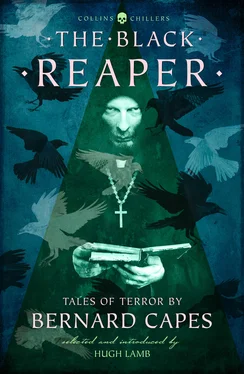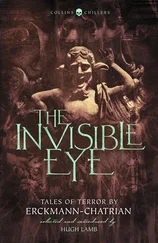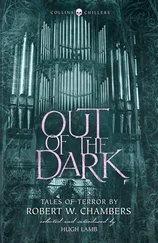Bernard Capes is a case in point. During his writing career, he published forty-one books, contributed to all the leading Victorian magazines, and left behind some of the most imaginative tales of terror of his era – yet within ten years of his death, he had slipped down the familiar slope into total neglect. Until the early 1980s, Capes seldom appeared in reference works in this (or any other) field of literature, and even histories of Victorian writers published in his lifetime give him scant mention. He was overlooked by every anthologist in this genre from his death in 1918 right up until 1978: sixty years of lingering in the dark while many of his contemporaries were brought back to light.
I would place Capes among the most imaginative writers of his day. He turned out plot after plot worthy of the recognition accorded to such contemporaries as Stevenson, Haggard, and Conan Doyle, all of whom are still in print today. I hope this selection of his stories will help put Capes in his deserved position with the leading talents of Victorian fantasy.
Bernard Edward Joseph Capes was born in London on 30 August 1854, a nephew of John Moore Capes, a prominent figure in the Oxford Movement. He was educated at Beaumont College and brought up as a Catholic. His elder sister, Harriet Capes (1849–1936), was to become a noted translator and writer of children’s books, publishing a dozen or more up to 1932.
As we will see, a very awkward angel perched on Capes’s shoulder all his life, and made its presence felt at an early stage of his career. He was meant to go into the army; but somehow there was an almighty bureaucratic tangle, and his intended commission was not granted due to some mistake about the age he should have been when presenting himself for examination. There is no record as to why he did not pursue the matter further but the army career came to nothing.
Capes’s awkward angel then accompanied him on the long string of ventures that he made into the world at large. After the army fiasco, he started work in a tea-broker’s office. It must have been dreadfully dull – the tea business in the 1870s was not the most exciting field of human activity, and the young Capes must have endured it in silence until, after a few years, he packed it in and went to study art at the Slade School. What he did about an art career is not recorded; but we do know that in 1888 he went to work for the publishers Eglington and Co., and succeeded Clement Scott as editor of the journal The Theatre .
At this point in his career, he made his first attempts at novel writing, publishing two under the pseudonym ‘Bevis Cane’: The Haunted Tower (1888) and The Missing Man (1889), the latter being issued by Eglington. Presumably neither novel won him success, as ‘Bevis Cane’ never appeared again; and what was generally thought to have been his first novel – under his own name – did not appear for another eight years.
Capes must have thought he had found his niche at last; this foray into writing was to spark off his final (and successful) career. But the angel was not finished yet. Eglington and Co. went out of business in 1892, and Capes must have been really stuck for an occupation to follow his editorship of The Theatre , for he is next discovered making an unsuccessful attempt at, of all things, rabbit farming. There is a dreadful black humour in the thought of a man who cannot successfully breed rabbits.
At long last, however, Capes, aged forty-three, found his true vocation. In 1897 he entered a competition for new authors organised by the Chicago Record . Capes came second with his novel The Mill of Silence , published in Chicago that year by Rand, McNally.
Obviously heartened by this turn of events, Capes entered the competition in 1898 when the Chicago Record repeated it. This time he hit the jackpot. His entry, The Lake of Wine – a long, sometimes quite macabre tale of a fabulous ruby bearing the title of the book – won the competition. It was published by Heinemann the same year, and Capes was a writer from then on.
And write he did. Out flooded short stories, articles, newspaper editorials, reviews, and novels. He published a further two in 1898 (including the book bearing one of the most unappetising titles of all time: The Adventures of the Comte de la Muette During the Reign of Terror ). All through the early 1900s, with a four-book bulge in 1910, and right up through the First World War, Capes knocked out a couple of books every year.
Each novel took three months to write, working six hours a day, and Capes would take a month’s holiday after finishing the book. He also played the piano and made games for his children. Another great interest was painting and illustrating.
When I met Ian Burns and Helen Capes in October 2002, they honoured me by showing me (and letting me hold!) a precious family heirloom – the only copy of Bernard’s The Book Of The Beasts . Subtitled ‘Being certain animals which through their own perversity or ill temper have become extinct’, the book had been hand-made by Capes, written and illustrated with his own watercolours, for his children. It was fascinating. No wonder Renalt said of his father in 1982: ‘Bernard was the nicest, kindest man I have ever known, and never had anything nasty to say about anybody at all.’
He wrote mainly novels, but every so often he issued a book of his stories collected from their various magazine appearances. The list of magazines he contributed to is impressive, and includes Blackwood’s, Cassell’s, Cornhill, The Idler, Illustrated London News, Lippincott’s, Macmillan’s, Pall Mall and Pearson’s : a roll of honour of the finest magazines of the era.
In 1889, Bernard Capes married Rosalie Amos (1865–1949) and they moved from Streatham to Winchester, where he spent the rest of his life. Rosalie appears to have been something of a domestic tyrant, handling the finances and running the household (vigorously, so it seems). Bernard must have been quite happy to concentrate on his writing. They had three children: Gareth (1893–1921), Nerine (1897–1967), and Renalt (1905–1983). Gareth had an army career (perhaps to make up for the one his father never had), while Renalt Capes (1905–1983) became, like his father, a writer late in life. He published three books in the late 1940s, including studies on Lord Nelson and Alexandre Dumas. He also wrote short stories, one of which was filmed as Dual Alibi (1946) with Herbert Lom. Nerine married Graham Burns and had an eventful time in the Second World War; Graham was later to be the last European killed in the Malayan emergency in 1952. Their son, Ian Burns, lives in Australia and carries on the Capes’s writing tradition, as the author of the children’s book Scratcher (1987) and many more since.
Bernard was very popular in Winchester and Renalt recalled one incident which indicates why. He remembered the First Army, the ‘contemptible little army’ according to the Kaiser, on its way from Winchester to Southampton, there to go to France, at the beginning of the first world war. The soldiers marched past Bernard’s house (for three days) and he set up tables outside, with coffee, sandwiches and cigarettes for the troops.
Even during his period of literary success, Bernard Capes’s angel was never far away. With a new novel on the stocks ( The Skeleton Key , published posthumously), Capes was struck down by the influenza epidemic which swept Europe at the end of the First World War. A short illness was followed by heart failure, and he died in Winchester on 1 November 1918. He was sixty-four, and had had only twenty years at writing. Capes’s luck, as always, ran out at the wrong time.
Rosalie organised a plaque for him in Winchester Cathedral, among the likes of Izaak Walton and Jane Austen. It can still be seen, next to the entrance to the crypt.
Читать дальше












